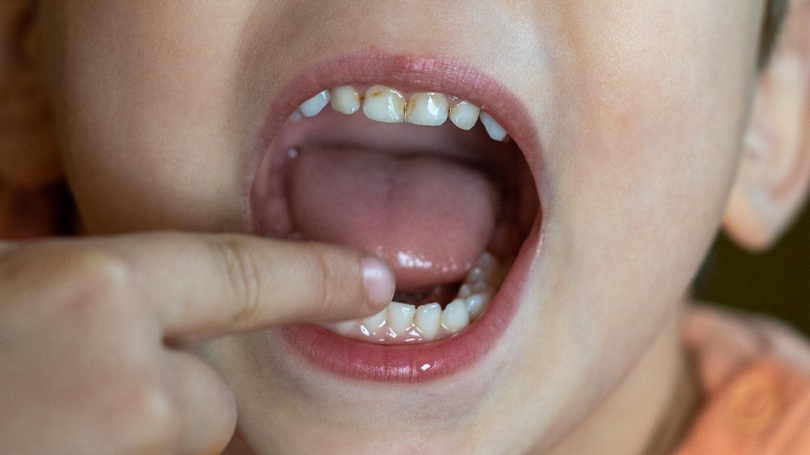What Causes Cavities and How to Prevent Them

Cavities—also known as dental caries—are the most common oral health issue, and tooth decay can affect anyone regardless of age or gender. Tooth decay begins with the erosion of your enamel, which is the hard, outer protective layer of your teeth. While there can be other health issues that cause this, such erosion generally occurs due to plaque accumulation because of poor oral hygiene.
Plaque is a sticky substance that is constantly forming in your mouth. The natural bacteria in your mouth reacts with carbohydrates to create acid. That acid then reacts with your saliva and other food particles to create plaque, which sticks to your teeth and gumline and releases acid over time. Eventually, that plaque will harden into a substance known as tartar—or dental calculus—which is even more problematic because it generally cannot be removed at home and has to be scraped away by a dentist.
Cavities Can Be Organized Into Two Core Groups:
- Pit and fissure cavities – These cavities are prevalent on the crowns of the molar and premolar teeth as well as on the backside of the front—or anterior—teeth. Your teeth can have various pits and fissures that are formed where the various sections of your enamel integrate. Food particles can get trapped in these grooves and lead to plaque that is difficult to remove. Many dentists now recommend pit and fissure sealants that help avoid such cavities and decrease the likelihood that you will ever require fillings in your teeth.
- Smooth surface cavities – Plaque can accumulate along the gumline and in the spaces between your teeth. Left unchecked, that plaque will lead to smooth surface cavities. The American Dental Association (ADA) recommends attention to detail when brushing near the gumline as well as flossing between the teeth and gums once a day. Daily flossing is essential to disrupt plaque that you cannot easily reach by brushing alone.
Oral Hygiene
Consistent oral hygiene at home is usually enough to avoid cavities, but you should see your dentist twice a year. The ADA recommends a soft-bristled toothbrush. Select a toothbrush head that is easy to use and small enough to be comfortable. A powered toothbrush is not required, but it can make the task easier and the results more consistent. Discuss your toothbrush choice with your dentist.
The ADA also recommends using a toothpaste that contains fluoride. Look for a product that has the ADA Seal of Acceptance, which gives you peace of mind. As long as your toothpaste has that seal, then flavors, textures, and other characteristics are simply a matter of choice. Fluoride is important because it coats your teeth and is able to neutralize acids. After brushing your teeth, the ADA recommends using a therapeutic mouthwash once a day.
Most dentists recommend a regular fluoride treatment as well, and many include it in a regular visit along with cleaning your teeth. Such treatments involve a highly concentrated form of fluoride that will integrate with your teeth when undisturbed for about an hour or so. This integration makes your enamel and root surfaces more resistant to the acid from plaque. Fluoride treatments can also make your teeth less sensitive and can actually slow down the formation of cavities that are in the early stages.
Cavities used to be quite prevalent in children because their immune systems are still developing, and kids tend to eat more sweets and be less dedicated to their oral hygiene. Modern dental care, however, has reduced those statistics substantially. Thanks to advancements in dental care and treatments, as well as greater awareness among parents, it is not unusual now for people to go their entire lives without ever experiencing a cavity. All it takes is consistent care at home and regular dentist visits.
Enjoy a Cavity-Free Smile
You never have to deal with the discomfort and costs associated with a cavity. Brush after breakfast and again before you go to sleep for at least two minutes. Floss daily, and schedule an exam and cleaning with your dentist every six months. You can schedule that appointment today with Jeffrey D. Clark, DDS, at Scottsdale Cosmetic Dentistry Excellence. Dr. Clark is a leading dentist in Scottsdale who provides all the preventative care you need to remain cavity-free. Call us at 480 585 1853.




